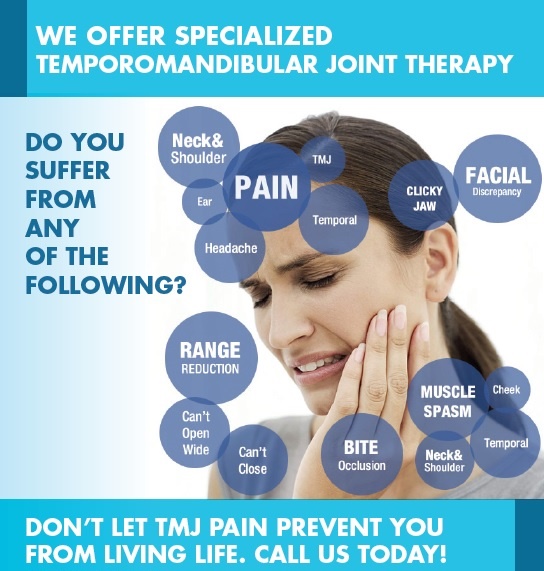TMD Pain Therapy | Temporomandibular disorders | Cornell Dental Centre

Causes of TMJ Disorders Include:
Acute trauma to the jaws such as a car accident, a fall, a punch, etc.
Bruxism – grinding and clenching of your teeth
Malocclusions or “bad bites”
Bad Habits such as poor posture
Emotional Stress
What Are the Symptoms of TMD?
A variety of symptoms may be linked to TMJ disorders. Pain, particularly in the chewing muscles and/or jaw joint, is the most common symptom.
Other Likely Symptoms Include:
Radiating pain in the face, jaw, or neck,
Jaw muscle stiffness,
Limited movement or locking of the jaw,
Painful clicking, popping or grating in the jaw joint when opening or closing the mouth,
A change in the way the upper and lower teeth fit together.
How Does Cornell Dental Centre Treat TMJ Disorders?
Stabilization Splints
After a proper assessment and diagnosis, Cornell Dental Centre may recommend an oral appliance, also called a stabilization splint or bite guard, which is a plastic guard that fits over the upper or lower teeth.
Stabilization splints are the most widely used treatments for TMJ disorders. They offer a conservative, non-surgical and reversible approach to TMD therapy. They provide immediate pain relief and do not cause permanent changes in your bite. If a splint causes or increases pain, please let us know.

Symptoms of TMJ dysfunction are so diverse that someone suffering from them may go undiagnosed for years.
If you feel you are suffering from TMJ or suspect you might have symptoms, please contact Cornell Dental Centre know, and we’ll be more than happy to schedule an examination

